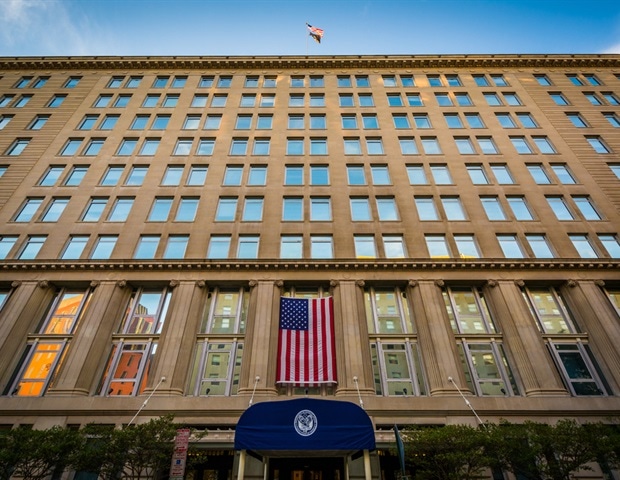Most U.S. military veterans who have used psychedelics reported in a recent study that they pursued the substances for healing or spiritual exploration, and over 80% said they benefited from the experience – even those who had challenging outcomes.
The survey also indicated many of the veterans would be more likely to seek mental health care, or return to care, at the U.S. Department of Veterans Affairs (VA) if psychedelic-assisted therapy were offered.
Findings from this comprehensive examination of veterans’ experiences with psychedelics can give clinicians a clearer understanding of the veteran community’s expectations and specific needs for mental health care, researchers say.
Because of all of the complexity that veterans are experiencing and the higher risk they’re at for experiencing not just one, but several mental health and physical health-related challenges, it makes sense that they would be searching for opportunities to address those challenges, especially when they feel like they’re not being met with the current system here in the U.S.”
Alan Davis, lead author, associate professor and director of the Center for Psychedelic Drug Research and Education at The Ohio State University College of Social Work
The study was published recently in the Journal of Psychoactive Drugs.
The VA estimates that more than 17 U.S. veterans die by suicide each day, according to 2021 data. And studies suggest between 44% and 72% of veterans are highly stressed during the transition from military to civilian life.
The research team, which included veterans, consulted with other past military service members to design a survey examining patterns of psychedelic use, perspectives of those who did and did not report use, and what kinds of benefits and adverse outcomes were associated with veterans’ use of the drugs. Veterans were referred to the survey through online advertisements and communities, email invitations and word of mouth.
“Understanding military veteran culture is crucial for civilian therapists working with this population,” said co-author Mark Bates, a retired U.S. Air Force pilot and clinical psychologist at Sunstone Therapies, a Maryland treatment center researching psychedelic-assisted therapies.
“It’s about avoiding inadvertently undermining the therapeutic relationship and knowing how to use military culture as an effective frame of reference. This is also part of the reason of why we carefully consulted with a team of veteran advisers in the development and validation of the survey questions.”
With veteran advocacy for access to psychedelic-assisted therapy increasing in recent years, Bates said, “There is a really pressing need to explore anything that’s promising for mental health treatment.”
The survey sample consisted of 426 participants categorized into two groups – those who had (217) and had not (209) used psychedelics. Drugs used by veterans included psilocybin (magic mushrooms), LSD, ketamine, MDMA (ecstasy), ayahuasca, ibogaine, 5-MeO-DMT (toad) and peyote/mescaline. The most commonly reported reasons for use were healing or treatment (69%), spiritual exploration (47.5%) or recreation (38.7%).
Compared to veterans who had not used psychedelics, the veterans who had taken the drugs were more likely to be older and had spent more time deployed during their service, and a larger proportion of them reported PTSD, depression and anxiety.
While some participants were alone when they used psychedelics, many reported taking them in spiritual locations or outdoors, with friends, or in medical clinics or retreat centers – both in the United States and abroad.
Overall, participants rated the psychedelic experiences as beneficial whether they considered the experience uniformly positive (88.6%) or endured one or more adverse outcomes (81.3%). The most common adverse outcomes were flashbacks and craving or trying to reduce use of psychedelics. Fewer participants reported being arrested or seeking medical treatment in relation to using the drugs.
Statistical analysis identified a number of factors that lowered the likelihood of having negative outcomes: being older, using psilocybin, having depression or anxiety, obtaining psychedelics from a safe source, being prepared, comfortable and confident during the treatment, and being able to trust, let go and be open to the experience.
“This finding highlights the importance of people in the veteran community knowing that keeping these things in mind prior to use can help set them up for the best possible outcome,” Davis said.
With most psychedelic substances classified as Schedule I drugs under the Controlled Substances Act, the only legal way for most people to access them in the United States currently is in a clinical trial setting. Davis is leading a current psilocybin-assisted therapy study at Ohio State for the treatment of PTSD among military veterans, and Bates and colleagues at Sunstone Therapies have treated many veterans to date.
Finding that surveyed veterans would welcome a chance to access psychedelic-assisted therapy at the VA is an important highlight of the study, the researchers said.
“What’s really exciting about this study and understanding veterans’ interest in psychedelic-assisted therapy is it’s potentially opening up an opportunity to address some of their core challenges head-on,” Davis said. “Veterans are dying by suicide and fleeing the country to find these opportunities in other places, so the message is clear. This needs to be available.”
Additional co-authors were Nathan Sepeda, Adam Levin and Stacey Armstrong of Ohio State; independent researcher Erik Lund; Robert Koffman of Sunstone Therapies; Katinka Hooyer of the Medical College of Wisconsin; and Rachel Yehuda of the Icahn School of Medicine at Mount Sinai.
This work was supported by private donors, the Cammack Family Gift Fund, the Center for Psychedelic Psychotherapy and Trauma Research at the Icahn Medical School, the Johns Hopkins Center for Psychedelic and Consciousness Research, and the CPDRE at Ohio State.
Source:
Journal reference:
Davis, A. K., et al. (2024). The Epidemiology of Psychedelic Use Among United States Military Veterans. Journal of Psychoactive Drugs. doi.org/10.1080/02791072.2024.2401977.
Source link : News-Medica

